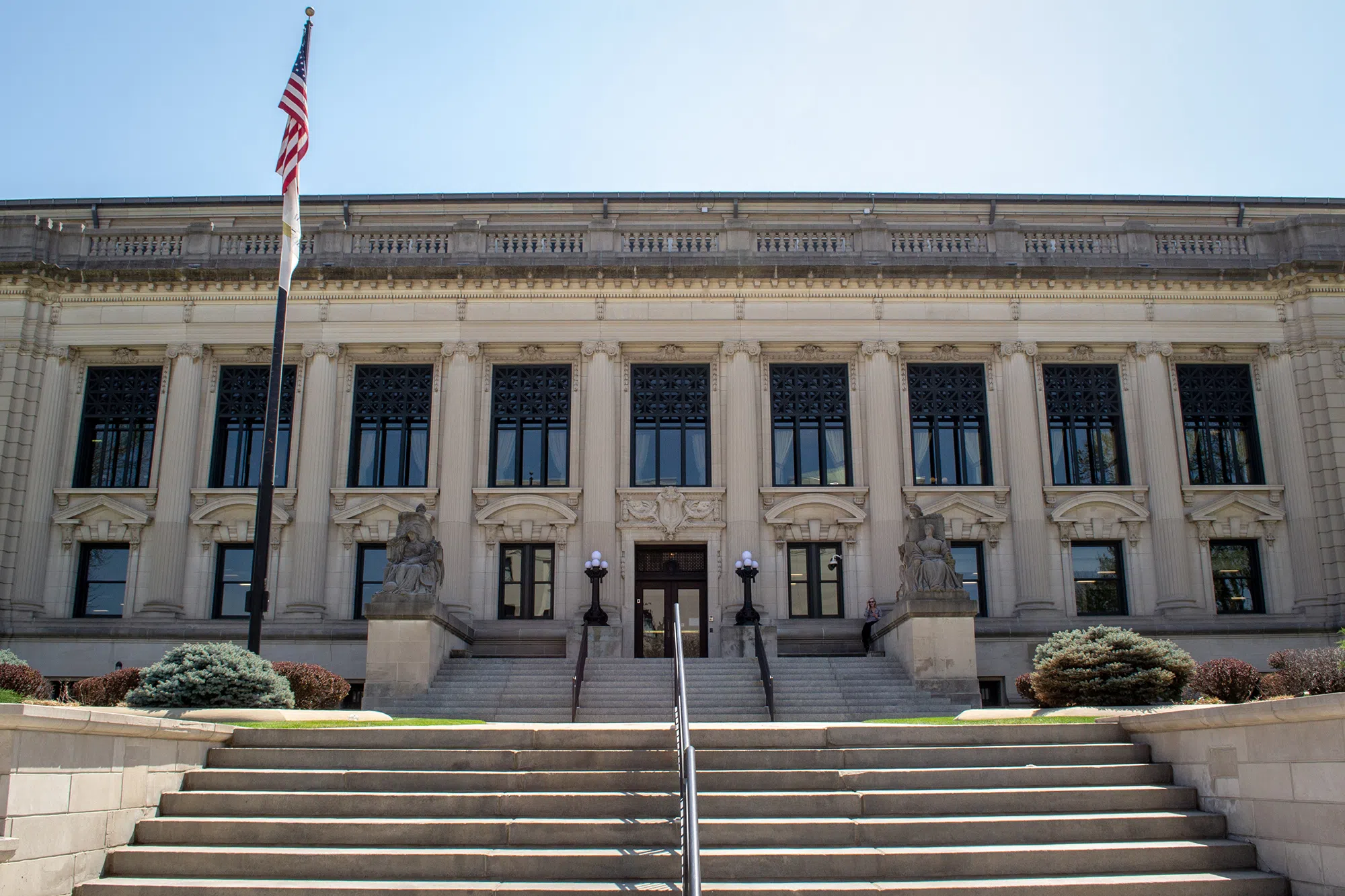Kennedy to remain on Illinois presidential ballot, 2 third-party candidates removed
By JERRY NOWICKI
& JENNIFER FULLER
Capitol News Illinois
news@capitolnewsillinois.com
SPRINGFIELD – A law banning political parties from waiting until after the primary election to place a state legislative candidate on the general election ballot won’t keep any Republicans from running this November.
The Illinois Supreme Court and State Board of Elections each made rulings Friday ensuring that a law rushed through by Democrats in May wouldn’t throw a wrench into the filing process for the current election cycle.
The decisions pertain to “candidate slating,” a process through which party insiders can name a candidate to the general election ballot for their party, even if no candidate ran in the party’s primary. The law – which is now officially on hold for 2024 – still allows parties to replace withdrawals but prevents slating in cases where the party didn’t run anyone in the primary.
The elections board ruled Friday morning that slated Republican candidate Jay Keeven may appear on the November ballot, throwing out challenges against him and other candidates that would have been affected by the law.
Hours later, the high court issued what’s known as a “Perlman order,” affirming a lower court’s decision to temporarily halt the law for the current cycle without setting a precedent in future cases. That ruling doesn’t void the law in its entirety, but rather blocks it only for this year’s general election for the 14 plaintiffs – all slated Republican candidates – that sued the state after the law’s passage.
Democrats introduced the bill in May, then passed it and sent it to the governor for a signature within 48 hours.
Read more: Democrats muscle through changes to ballot access, advisory questions
While Democrats billed the law as one to would weaken “party bosses,” Republicans decried it as a majority-party power grab to keep Republicans off the ballot in tight races.
A Sangamon County judge agreed in a June ruling that Democrats were out of line in changing the rules mid-cycle. Judge Gail Noll blocked the law from taking effect against the candidates who sued the state following its passage. The Supreme Court’s Friday opinion – which noted two justices recused themselves and the remaining judges couldn’t come to a four-vote majority – upholds the order.
Read more: Judge blocks law that would have banned newly slated candidates from ballot
Keeven, a candidate in what’s expected to be a tight House race against incumbent Democrat Katie Stuart in the Metro East, was not party to the lawsuit, because he filed petitions before the law took effect. Democrats challenged his candidacy, seeking to use the law to remove him from the ballot.
The Illinois State Board of Elections rejected the challenge on Friday on the grounds that “he filed his nomination papers in an accordance with the law in effect at the time.” They accepted the recommendation of a hearing officer with one dissenting vote from Board Chair Casandra Watson.
“For months, Democrats in Springfield have tried every possible way to keep the voters in the Metro-East from having a choice in November,” Keeven said in a statement. “Today, they lost. With every attempt to kick me off of the ballot, our campaign continues to gain momentum.”
Keeven’s challengers were represented by Michael Kasper, a Democratic election lawyer who has long been a power player on issues such as redistricting and candidate challenges. He argued that the hearing officer erred by enforcing a law that was no longer on the books.
“The board’s powers are to apply the law as it is today,” he argued.
But John Fogarty, the GOP’s counterpart to Kasper, argued the General Assembly shouldn’t be allowed to change the rules in the middle of an election cycle, particularly for candidates for the General Assembly.
“The role of this body is, yes, to apply the law, but you also apply the law as it was when this act was taken,” he said, noting that if the General Assembly wanted the law applied retroactively, it could have specifically said so.
Presidential action
In other action, the board removed two third-party candidates from the presidential ballot while ruling that independent candidate Robert F. Kennedy Jr. could remain on the ballot despite objections.
Libertarian candidate Scott Schluter and Green Party candidate Jill Stein were both ordered removed due to lack of signatures.
The challenges to Kennedy’s candidacy stemmed largely on the argument that he falsified his address, among other challenges to signatures and nominating petitions. But a hearing officer recommended he be kept on the ballot and the board agreed.
Kennedy’s lawyer didn’t comment when asked about the candidate’s future in the race.
“Is your client dropping out?” Watson asked.
“That’s beyond my pay grade. I’m sorry, I don’t know,” Kennedy’s attorney Andrew Finko replied. “I’m here for the electoral board and that’s it.”
Hours later, Kennedy said he’s not terminating his campaign but is taking his name off the ballot in swing states as to not play “spoiler.” He’s endorsing former President Donald Trump over Vice President Kamala Harris.
The Illinois State Board of Elections confirmed Friday that Kennedy’s name would appear on the ballot and he had not filed to withdraw as of Friday.


